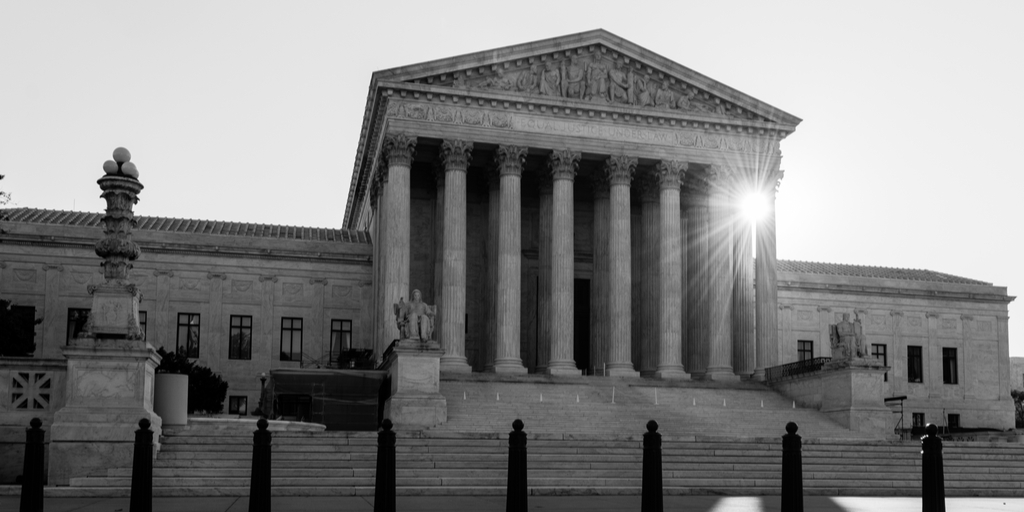

U.S. Supreme Court Rules in Favor of Employers in Class Action Waiver Case

On Monday, May 21, 2018, the U.S. Supreme Court issued a significant ruling holding that employers can require employees to arbitrate their disputes individually and to waive their right to resolve their employment disputes via class or collective action. The Court’s ruling, by a 5-4 margin, is an important victory for employers that, absent Congressional action, will likely permanently alter the landscape of class and collective action employment litigation and should signal all employers to review their current arbitration practices.
The Court’s opinion resolved three consolidated cases: Epic Systems Corp. v Lewis (Fair Labor Standards Act and related state law claims); Ernst & Young LLP v. Morris (Fair Labor Standards Act and related state law claims); and National Labor Relations Board v. Murphy Oil USA (Fair Labor Standards Act claims). In each of the three cases, an employee who had signed a contract agreeing to individually arbitrate employment disputes nevertheless sought to litigate employment-related claims through class or collective actions in federal court. Each of the employers objected to the employee’s efforts on the grounds that each employee was contractually mandated to seek redress via individual arbitration.
In support of their claim that they should be permitted to bring their claims collectively and in federal court, the employees argued that the arbitration agreement each had signed was illegal under the National Labor Relations Act (NLRA), which, among other things, guarantees workers the right to engage in “concerted activity.” Because the arbitration agreements prohibited the employees from proceeding jointly against their employers – which the employees argued was a form of concerted activity – the NLRA prohibited their enforcement. The employees also asserted that, in view of the language of the NLRA, the savings clause of the Federal Arbitration Act (FAA) also compelled the conclusion that the court should refuse to enforce the arbitration agreements at issue.
Justice Neil Gorsuch, writing for the majority, easily dismissed these arguments. Initially, the majority rejected the employees’ broad reading of the FAA’s savings clause, noting that the invalidating power of the savings clause – which allows courts to refuse to enforce arbitration agreements “upon such grounds as exist at law or in equity for the revocation of any contract” – is limited to “generally applicable contract defenses, such as fraud, duress, or unconscionability.” In other words, the savings clause “establishes a sort of ‘equal treatment’ rule for arbitration contracts,” designed to ensure that the validity of a particular arbitration contract is analyzed precisely the same way the validity of any other contract would be.
In the instant cases, the majority observed that none of the employees claimed that the contracts at issue were defective as a matter of contract law. Rather, the sole basis for attacking the agreements was that each required the employee to individually arbitrate with the employer. The Court held that this kind of attack – targeting arbitration itself – was in conflict with the “liberal federal policy favoring arbitration agreements” embodied in the FAA and firmly embraced by the Court’s earlier opinions upholding arbitration agreements in a variety of circumstances (including AT&T Mobility LLC v. Concepcion (2011), American Express Co. v. Italian Colors Restaurant (2013), and DIRECTV v Imburgia (2015)). The majority interpreted this body of prior case law as standing for the proposition that “the savings clause does not save defenses that target arbitration, either by name or by more subtle methods, such as by ‘interfering with fundamental attributes of arbitration.’” Accordingly, even if the employees could establish that the agreements at issue violated the NLRA, the savings clause cannot be used to “declare individualized arbitration off limits.”
Turning then to the issue of the NLRA, the majority also rejected the employees’ claim that the NLRA contained the “clear and manifest congressional command to displace the [FAA]” necessary to invalidate the otherwise valid arbitration agreements. Indeed, the Court held, nothing in the statutory text of the NLRA overrides – either explicitly or implicitly – the clear direction of the FAA that arbitration agreements must be enforced according to their terms. Nor could the Court discern any “irreconcilable conflicts” between the NLRA and FAA such that the Court was forced to “pick and choose between [the] statutes.”
At bottom, the “congressional command requiring [the Court] to enforce . . . the terms of arbitration agreements” dictated that the arbitration agreements at issue were valid and enforceable. While allowing that “the policy may be debatable,” the majority held that “the law is clear: Congress has instructed that arbitration agreements . . . must be enforced as written.” Although “Congress is of course always free to amend” the applicable laws, the Court itself “is not free to substitute its preferred economic policies for those chosen by the people’s representatives.”
Justice Ruth Bader Ginsburg read a spirited dissent from the bench, characterizing the majority’s opinion as “egregiously wrong.” Ginsberg, who was joined in her dissenting opinion by Justices Breyer, Kagan, and Sotomayor, predicted that the majority’s opinion would inevitably lead to “the underenforcement of federal and state statutes designed to advance the well-being of vulnerable workers” since the “[e]xpenses entailed in mounting individual claims will often far outweigh potential recoveries.”
Although there is always a chance that Congress could act to reverse the Supreme Court’s decision, the current political landscape would suggest that such a result, particularly in the short run, is unlikely. In view of the Supreme Court’s clear stamp of approval of these agreements, now is an opportune time for all employers to review their arbitration practices. Employers that do not currently require employees to arbitrate on an individual basis should work with legal counsel to carefully consider the costs and benefits of doing so. Employers that already have such agreements in place would do well to review those agreements with counsel in light of this important decision.
